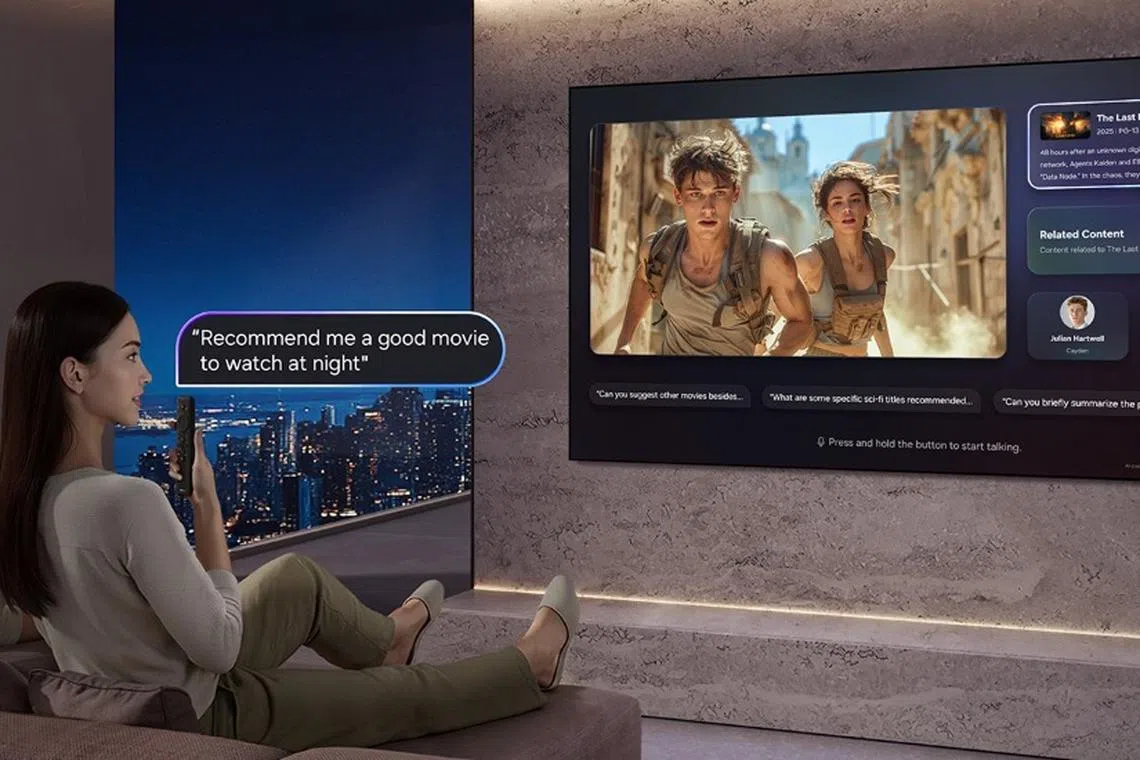The Evolution of Technology in Entertainment: A New Era
Author: Liu Hongzuo

In recent years, technology has rapidly transformed the entertainment landscape, particularly through the integration of artificial intelligence (AI) in various applications. This article delves into the profound changes wrought by AI-driven systems in entertainment, examining significant developments such as Samsung's latest Bixby AI assistant for smart TVs, the emergence of independent filmmakers leveraging AI capabilities, and innovations in tools like ChatGPT that are enhancing creative processes.
Samsung's updated Bixby, an AI voice assistant for its smart TVs, represents a shift in how users interact with their entertainment systems. The new iteration of Bixby places heavy emphasis on generative AI, thus marking a notable departure from its predecessor. By optimizing user engagement experiences, Samsung aims to create a more intuitive interface, adjusting to viewers' habits and preferences. This evolution illustrates a significant trend in technology where AI is not just performing tasks but is actively learning and adapting to enhance user satisfaction.

Samsung's updated Bixby voice assistant aims to revolutionize user interaction with smart TVs.
Meanwhile, in the realm of independent filmmaking, artists are harnessing the power of AI to streamline creative processes significantly. A notable example is Youcef Hollywood, a solo filmmaker who produced an ambitious history documentary titled "Human History" using 98% of AI-generated content. This project showcases how AI can enable filmmakers, especially those working independently, to achieve professional-quality results in substantially less time than traditional methods would require. With such advancements, the barriers to entry in filmmaking are diminishing, fostering a new wave of creativity in the industry.
The use of AI in creative fields underscores a broader cultural shift towards technology-driven efficiency, where complex tasks can be performed quickly, leading to an unprecedented level of production. The excitement surrounding AI capabilities has not only captured the attention of filmmakers but also audiences worldwide, who are eager to see innovative storytelling enhanced by this technology. As AI continues to enhance content creation, the question remains—how will this impact the future of traditional media?

Youcef Hollywood’s groundbreaking documentary 'Human History' demonstrates the power of AI in filmmaking.
In another vein, OpenAI's introduction of a new feature in ChatGPT, known as 'break prompts', aims to promote user wellness. By providing gentle reminders to pause and reflect during high-stakes decisions, this feature represents the intersection of AI with personal well-being. Users can now employ AI not just as a tool for productivity, but as an assistant that encourages a healthier approach to decision-making. Such features blur the lines between straightforward artificial intelligence and a more empathetic engagement with users.
As we explore these advancements, it's crucial to acknowledge the underlying trends that are shaping the entertainment sector's future. The integration of generative AI in various media formats is reminiscent of the early days of digital media, where new technologies disrupted established norms. This transformation prompts critical discussions about creativity, ownership, and the potential ethical implications surrounding AI-generated content. As creators leverage tools like ChatGPT and advanced AI systems, the evolving nature of creative expression raises questions about the authenticity of art and its creators.

OpenAI's ChatGPT introduces features that enhance user focus and personal well-being.
Furthermore, the landscape of various technology-driven markets signifies a shift in consumer expectations and industry standards. Reports from recent studies indicate impressive market forecasts for sectors such as cloud-based payroll software and configuration management software, which are projected to grow substantially in the coming years. The convergence of technology and traditional industries is leading to innovative solutions that enhance operational efficiency, respond to market demands, and fundamentally change how businesses operate.
In summary, the realm of entertainment and media is undergoing vast transformations through technological innovations. From AI voice assistants like Samsung's Bixby to the emergence of independent films powered by AI, and a focus on user wellness in platforms like ChatGPT, the future presents exciting possibilities. As audiences and creators alike adapt to these advancements, the ongoing evolution in the entertainment landscape will undoubtedly continue to surprise and engage.
As we look towards the future, questions remain—how will the industry balance technology and human creativity? What ethical considerations will arise as AI's role expands? The intersection of technology and entertainment is a vibrant space, ripe for exploration. With every development, we forge new paths in storytelling, creativity, and human connection.